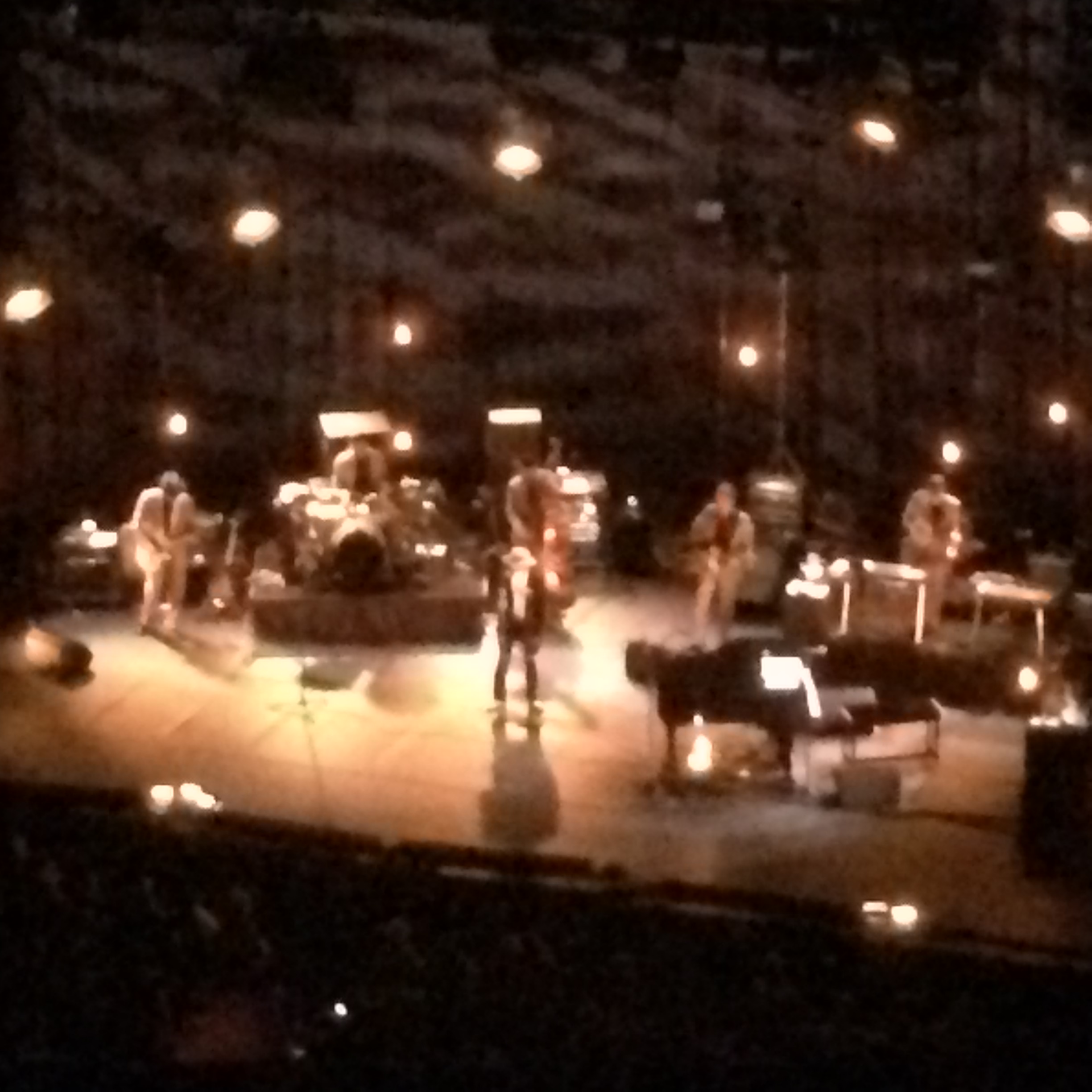
In late April, Bob Dylan, backed by an expert band, supplied an attentive audience at Atlanta’s Fox Theatre with warm, bluesy, bracing musical entertainment, mostly comprised of songs he has written over the last decade.
Even the older tunes, from the 60s and 70s, like “Tangled Up in Blue,” “Simple Twist of Fate,” and “Blowin’ in the Wind,” were performed in modern rearrangement, suitable to the piano-guided blues that characterizes his contemporary sound.
This style will strike those who know only his fifty-year-old protest songs very noticeably. The folk balladeer of antiquity does not much resemble the craggy bluesman of today.
At the Fox in Atlanta, the idle listener who thought instinctively of “The Times They Are A-Changin’” would not immediately recognize these gentle, rhythmic numbers, but this sound has defined Bob Dylan since before the turn of the millennium.
The crowd, enthusiastic but well-behaved (I only smelled pot twice and no one was falling-down-drunk as far as I could tell), witnessed a Dylan who never once picked up a guitar, preferring instead to stand alone, center-stage, minimal of gesture or antic; or to seat himself at a splendid grand piano, with a bust of Mozart overlooking. His occasional harmonica interludes rang with crystal clarity against Charlie Sexton’s steady guitar, and elicited some of the loudest cheers.
The Fox Theatre’s acoustics are excellent. Drummer George Receli used brushes rather than standard sticks, and bassist Tony Garnier favored the stand-up bass: these and other arrangement decisions preserved a certain tranquility to the concert. Dylan’s gravelly vocals were rarely indecipherable, and seldom did the guitar licks shock the ears.
So there was an intimacy and a vulnerability to this show: We came to see the troubadour, the old bluesman and the voice of Appalachia-to-the-Rockies American music, a proficient and legendary performer but also an aged man, worn by the world and its sin.
Dylan himself was sharply dressed, alert, intense, and professional. He spoke between songs only once or twice, a “Thank you” or a “We’ll be right back.” He shuffled like a grandfather but with dispatch. The stage lighting and transitions were ably carried off. Little about this show suggested ostentation or lavishness.
Moreover, this tour’s stable setlist means that all the principals are, rhythmically and theatrically, well-practiced and agile. It was, on the whole, an accomplished performance.
The troubadour’s determination to strum no guitar, and stand alone at the mic, while unexpected, proved inspired. Leave that workman’s business to the old pros he’s hired. Bob Dylan arrives to entertain and illumine. We all know he can play a mean guitar and write brilliantly to even meaner ones, so why tax a 73-year-old with task of lead or rhythm guitar?
In my opinion, the 2006 song “Spirit on the Water” is one of the pinnacles of Bob Dylan’s late-career achievement. Take a listen and estimate your reaction.
Whatever you novices thought of Dylan it wasn’t that. I’ve long found it peculiarly soothing.
The piano drives this cadenced song of lyrical and vocal depth unexceeded by the great comic ballads or vituperative pastiches of the 60s. From Genesis 1:2, in the song’s title and opening lines, to Genesis 4, adduced near its conclusion, the narrator appears to alternate between a confessional prayer to God and an ambiguous love-poem to a woman. A New Zealander music critic, digging deeply, discovered some clear echoes of the Roman poet Ovid in the song.
At the Fox Theatre we got a fine rendition of “Spirit on the Water,” plus its companion “Soon After Midnight,” and a version of “Simple Twist of Fate” which sounded somewhat like them, and also included a magnificent harmonica solo. This last song was in many ways the climax of the show: an old and well-known tune, reinvigorated for modern times as St. Louis blues.
We heard two fine sets of mostly St. Louis piano blues that night April, and I salute Bob Dylan for his continuing innovations in a certain craft of folk-country-bluegrass-rock-blues, in a word American music.

Comments (6)
Love that harmonica at the end.
I am a barbarian when it comes to original folk music, but even I can tell a master when I hear him.
Posted by Tony | June 2, 2015 7:21 PM
Thanks for sharing this Paul. Rust never sleeps, and neither do musical legends.
Posted by Step2 | June 2, 2015 7:44 PM
Great review Paul. Bob Dylan has solidified his place in history. His ability to create timeless art is truly a gift that is reserved for a select few. We are fortunate to have witnessed this unfading master live, in the flesh. It gives me great pleasure to see Bob Dylan kicking butt and being appreciated.
Posted by Chris Mozingo | June 4, 2015 8:41 PM
One of his new key songs is "Early Roman Kings". I interpret the title refers to our corrupt modern ruling elites. The song ends audaciously with Christ introduced as a narrator and reminding us that He loves us all no matter how lowly and that He is our only salvation-He also tells us He will judge the Early Roman Kings.
Posted by DeGaulle | June 5, 2015 6:46 PM
That's an audacious interpretation of the song, DeGaulle, but I really like it.
Posted by Paul J Cella | June 5, 2015 11:06 PM
Thanks, Paul. I have come to the conclusion that with most of his work since his conversion, Dylan's lyrics can be interpreted on two or more levels, but that the deepest and most coherent seem to be the Christocentric ones. For example, I would listen to his very popular 'Make You Feel My Love' by imagining Christ as the narrator of the song. Also, could it be Our Lord declaiming about how the whole world burned while His back was turned in the masterful 'Long And Wasted Years'? Could the family who lost their land be the Jewish people?
Posted by DeGaulle | June 6, 2015 11:22 AM